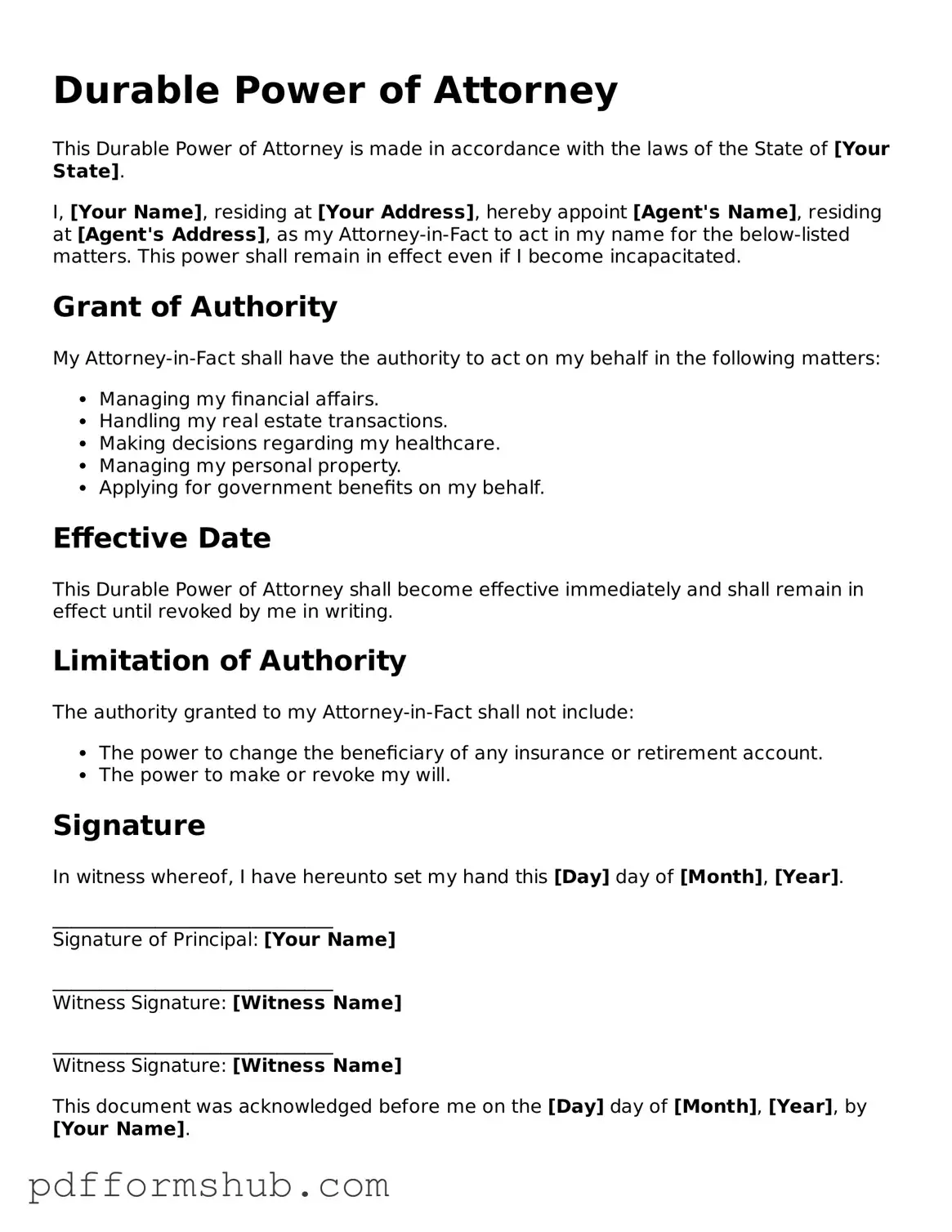Valid Durable Power of Attorney Form
A Durable Power of Attorney form is a legal document that allows one person to make decisions on behalf of another, especially when that person is unable to do so. This form remains effective even if the individual becomes incapacitated, ensuring that their wishes are honored. Understanding its importance can help you plan for the future and protect your interests.
Ready to take control of your future? Fill out the form by clicking the button below.
Customize Form

Valid Durable Power of Attorney Form
Customize Form

Customize Form
or
Free PDF Form
Short deadline? Complete this form now
Complete Durable Power of Attorney online without printing hassles.